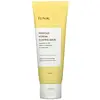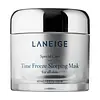What's inside
What's inside
 Key Ingredients
Key Ingredients

 Benefits
Benefits

 Concerns
Concerns

 Ingredients Side-by-side
Ingredients Side-by-side

Water
Skin ConditioningCentella Asiatica Leaf Water
Skin ConditioningGlycerin
HumectantButylene Glycol
HumectantHippophae Rhamnoides Fruit Extract
Skin Conditioning1,2-Hexanediol
Skin ConditioningNiacinamide
SmoothingCetearyl Glucoside
EmulsifyingCetearyl Alcohol
EmollientCetyl Ethylhexanoate
EmollientCaprylic/Capric Triglyceride
MaskingMethyl Trimethicone
Skin ConditioningHydrogenated Polyisobutene
EmollientGlyceryl Stearate
EmollientAcrylates/C10-30 Alkyl Acrylate Crosspolymer
Emulsion StabilisingCetearyl Olivate
Arginine
MaskingSorbitan Olivate
EmulsifyingAllantoin
Skin ConditioningAdenosine
Skin ConditioningDipotassium Glycyrrhizate
HumectantPropolis Extract
Skin ConditioningCaprylyl Glycol
EmollientPentylene Glycol
Skin ConditioningCentella Asiatica Extract
CleansingPolygonum Cuspidatum Root Extract
AntioxidantScutellaria Baicalensis Root Extract
AstringentCamellia Sinensis Leaf Extract
AntimicrobialChamomilla Recutita Flower Extract
MaskingRosmarinus Officinalis Leaf Extract
AntimicrobialBrassica Oleracea Italica Extract
AstringentMedicago Sativa Extract
TonicBrassica Oleracea Capitata Leaf Extract
Skin ConditioningTriticum Vulgare Sprout Extract
Skin ConditioningBrassica Campestris Extract
Skin ConditioningRaphanus Sativus Seed Extract
Skin ConditioningSaccharomyces/Viscum Album Ferment Extract
Skin ConditioningLactobacillus/Soybean Ferment Extract
Skin ConditioningSaccharomyces/Imperata Cylindrica Root Ferment Extract
EmollientWater, Centella Asiatica Leaf Water, Glycerin, Butylene Glycol, Hippophae Rhamnoides Fruit Extract, 1,2-Hexanediol, Niacinamide, Cetearyl Glucoside, Cetearyl Alcohol, Cetyl Ethylhexanoate, Caprylic/Capric Triglyceride, Methyl Trimethicone, Hydrogenated Polyisobutene, Glyceryl Stearate, Acrylates/C10-30 Alkyl Acrylate Crosspolymer, Cetearyl Olivate, Arginine, Sorbitan Olivate, Allantoin, Adenosine, Dipotassium Glycyrrhizate, Propolis Extract, Caprylyl Glycol, Pentylene Glycol, Centella Asiatica Extract, Polygonum Cuspidatum Root Extract, Scutellaria Baicalensis Root Extract, Camellia Sinensis Leaf Extract, Chamomilla Recutita Flower Extract, Rosmarinus Officinalis Leaf Extract, Brassica Oleracea Italica Extract, Medicago Sativa Extract, Brassica Oleracea Capitata Leaf Extract, Triticum Vulgare Sprout Extract, Brassica Campestris Extract, Raphanus Sativus Seed Extract, Saccharomyces/Viscum Album Ferment Extract, Lactobacillus/Soybean Ferment Extract, Saccharomyces/Imperata Cylindrica Root Ferment Extract
Water
Skin ConditioningPropanediol
SolventAvena Sativa Kernel Extract
AbrasiveGlycerin
HumectantCyclopentasiloxane
EmollientDimethicone
EmollientSqualane
EmollientCyclohexasiloxane
EmollientCeratonia Siliqua Fruit Extract
MaskingHibiscus Abelmoschus Seed Extract
MaskingTillandsia Usneoides Extract
Skin ConditioningAdenosine
Skin ConditioningHydrogenated Lecithin
EmulsifyingC12-16 Alcohols
EmollientGlyceryl Caprylate
EmollientDextrin
AbsorbentDimethicone/Vinyl Dimethicone Crosspolymer
Skin ConditioningDipalmitoyl Hydroxyproline
Skin ConditioningButylene Glycol
HumectantCetearyl Glucoside
EmulsifyingCetearyl Alcohol
EmollientEthylhexylglycerin
Skin ConditioningXanthan Gum
EmulsifyingTheobroma Cacao Extract
Skin ConditioningPalmitic Acid
EmollientPolysorbate 20
EmulsifyingPvp
Emulsion StabilisingPEG-240/Hdi Copolymer Bis-Decyltetradeceth-20 Ether
StabilisingHydroxyethyl Acrylate/Sodium Acryloyldimethyl Taurate Copolymer
Emulsion StabilisingDisodium EDTA
Phenoxyethanol
PreservativeParfum
MaskingWater, Propanediol, Avena Sativa Kernel Extract, Glycerin, Cyclopentasiloxane, Dimethicone, Squalane, Cyclohexasiloxane, Ceratonia Siliqua Fruit Extract, Hibiscus Abelmoschus Seed Extract, Tillandsia Usneoides Extract, Adenosine, Hydrogenated Lecithin, C12-16 Alcohols, Glyceryl Caprylate, Dextrin, Dimethicone/Vinyl Dimethicone Crosspolymer, Dipalmitoyl Hydroxyproline, Butylene Glycol, Cetearyl Glucoside, Cetearyl Alcohol, Ethylhexylglycerin, Xanthan Gum, Theobroma Cacao Extract, Palmitic Acid, Polysorbate 20, Pvp, PEG-240/Hdi Copolymer Bis-Decyltetradeceth-20 Ether, Hydroxyethyl Acrylate/Sodium Acryloyldimethyl Taurate Copolymer, Disodium EDTA, Phenoxyethanol, Parfum
 Reviews
Reviews

Ingredients Explained
These ingredients are found in both products.
Ingredients higher up in an ingredient list are typically present in a larger amount.
Adenosine is in every living organism. It is one of four components in nucleic acids that helps store our DNA.
Adenosine has many benefits when used. These benefits include hydrating the skin, smoothing skin, and reducing wrinkles. Once applied, adenosine increases collagen production. It also helps with improving firmness and tissue repair.
Studies have found adenosine may also help with wound healing.
In skincare products, Adenosine is usually derived from yeast.
Learn more about AdenosineButylene Glycol (or BG) is used within cosmetic products for a few different reasons:
Overall, Butylene Glycol is a safe and well-rounded ingredient that works well with other ingredients.
Though this ingredient works well with most skin types, some people with sensitive skin may experience a reaction such as allergic rashes, closed comedones, or itchiness.
Learn more about Butylene GlycolCetearyl alcohol is a mixture of two fatty alcohols: cetyl alcohol and stearyl alcohol. It is mainly used as an emulsifier. Emulsifiers help prevent the separation of oils and products. Due to its composition, it can also be used to thicken a product or help create foam.
Cetearyl alcohol is an emollient. Emollients help soothe and hydrate the skin by trapping moisture.
Studies show Cetearyl alcohol is non-toxic and non-irritating. The FDA allows products labeled "alcohol-free" to have fatty alcohols.
This ingredient is usually derived from plant oils such as palm, vegetable, or coconut oils. There is debate on whether this ingredient will cause acne.
Due to the fatty acid base, this ingredient may not be Malassezia folliculitis safe.
Learn more about Cetearyl AlcoholCetearyl Glucoside is a surfactant and emulsifier. It can be produced from synthetic of natural sources of cetearyl alcohol and glucose.
Emulsifiers help prevent ingredients from separating, such as oils and waters. It can also be used to enhance the texture of products.
As a surfactant, Cetearyl Glucoside helps during the cleansing process. By gathering all the dirt and oils, it allows these molecules to be washed away easily.
Learn more about Cetearyl GlucosideGlycerin is already naturally found in your skin. It helps moisturize and protect your skin.
A study from 2016 found glycerin to be more effective as a humectant than AHAs and hyaluronic acid.
As a humectant, it helps the skin stay hydrated by pulling moisture to your skin. The low molecular weight of glycerin allows it to pull moisture into the deeper layers of your skin.
Hydrated skin improves your skin barrier; Your skin barrier helps protect against irritants and bacteria.
Glycerin has also been found to have antimicrobial and antiviral properties. Due to these properties, glycerin is often used in wound and burn treatments.
In cosmetics, glycerin is usually derived from plants such as soybean or palm. However, it can also be sourced from animals, such as tallow or animal fat.
This ingredient is organic, colorless, odorless, and non-toxic.
Glycerin is the name for this ingredient in American English. British English uses Glycerol/Glycerine.
Learn more about GlycerinWater. It's the most common cosmetic ingredient of all. You'll usually see it at the top of ingredient lists, meaning that it makes up the largest part of the product.
So why is it so popular? Water most often acts as a solvent - this means that it helps dissolve other ingredients into the formulation.
You'll also recognize water as that liquid we all need to stay alive. If you see this, drink a glass of water. Stay hydrated!
Learn more about Water